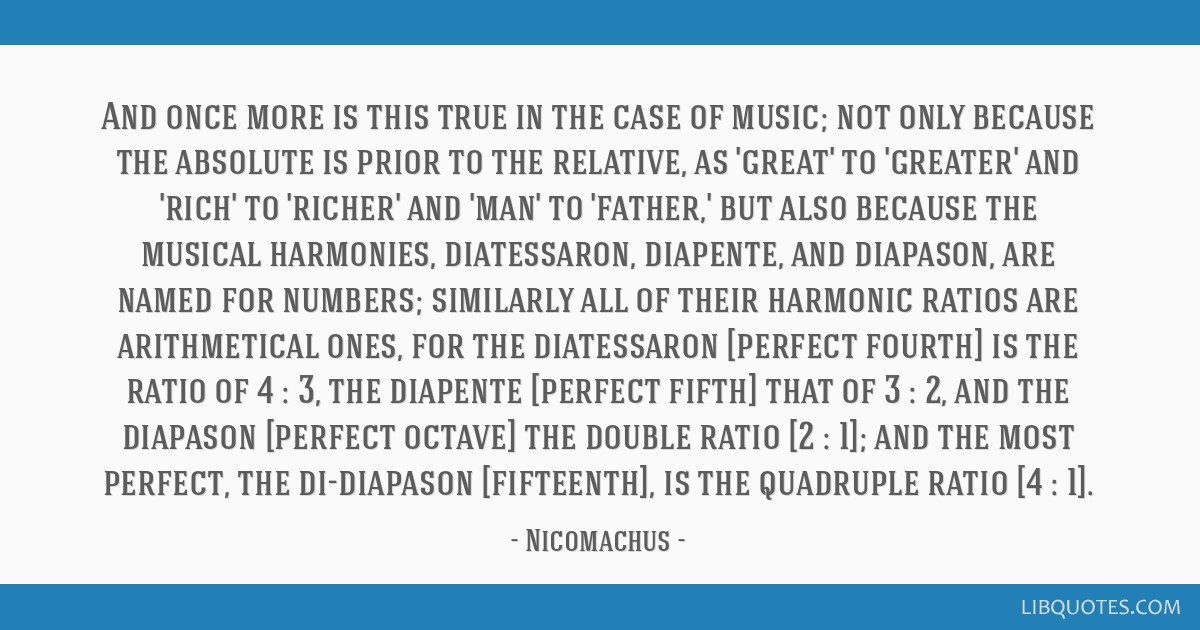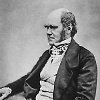And once more is this true in the case of music; not only because the absolute is prior to the relative, as 'great' to 'greater' and 'rich' to 'richer' and 'man' to 'father,' but also because the musical harmonies, diatessaron, diapente, and diapason, are named for numbers; similarly all of their harmonic ratios are arithmetical ones, for the diatessaron [perfect fourth] is the ratio of 4 : 3, the diapente [perfect fifth] that of 3 : 2, and the diapason [perfect octave] the double ratio [2 : 1]; and the most perfect, the di-diapason [fifteenth], is the quadruple ratio [4 : 1].
Nicomachus of Gerasa: Introduction to Arithmetic (1926)























